

Front was the second in order of writing of the chamber operas Robert and I have been working on, and at that time we still had no conception of a cycle covering the 20th century. Having written Fishing and realised it was only 45 minutes long, it seemed logical that it should become half of a double bill, to make up a complete evening.
The logical choice of subject was the other gay ‘bookend’ of Wilde’s life, his first love and truest friend, Robert Ross. Ross probably seduced Wilde around 1886, when he was 17 and Wilde 32; he is credited with bringing him to a realisation of his true nature. Ross himself, Canadian, had come out to his parents, and was content to be a practising homosexual, with all its attendant dangers, by the time of the passage of the notorious Labouchère amendment in 1885.
Though the sexual element of their relationship soon faded ‐ Robbie preferred butch youths his own age to the pasty, flabby Wilde ‐ he remained a constant and wise friend until Wilde’s death in 1900, when he became his literary executor. He was never prosecuted for any homosexual acts, though his secretary Christopher Millard was imprisoned twice, and Scotland Yard detectives constantly followed him.
Robbie stood by Millard, as he had stood by Oscar very publicly at his bankruptcy hearing ‐ a story re‐enacted in the opera. Ross was perhaps the second most notorious homosexual in London after Alfred Douglas, but he stuck to his devotion to Wilde, rehabilitated him as a writer with a Complete Edition of his works, and earned enough for the Wilde estate through them to move Wilde’s remains in style to Père Lachaise cemetery in Paris, where they remain in the most famous grave among the famous graves.
In the Great War, Ross was a pacifist, which required a great deal of courage, an admirer of German culture, he visited German prisoners of war in their camps, was a supporter of women’s suffrage and birth control; all of which he undertook with great style and in fading health.
One story to illustrate his charm: In 1915 London experienced its first air raids, as bombs dropped from Zeppelins came raining on the capital. Though the physical effect was small, the psychological impact was enormous.
After one such raid, Robbie, who lived in Half Moon Street, Piccadilly, discovered an old woman paralysed with fright cowering in a corner of the Ritz hotel frontage, unable to move. Solemnly he offered her his arm to cross the street, and as she stood up, he opened his umbrella on this fine night, as a protection against the bombs. Thus, reassured she crossed Piccadilly safely.

Our opera plot springs from an entry in Siegfried Sassoon’s diary quoted in Siegfried’s Journey. Ross found a new role in later life as a mentor to young poets including Sassoon (with whom he had an affair), Wilfred Owen (whose homosexuality is central to his work, and little acknowledged even today), and Robert Graves.
Ross introduced them to important literary figures, arranged introductions to publishers, and helped their work through the printers.
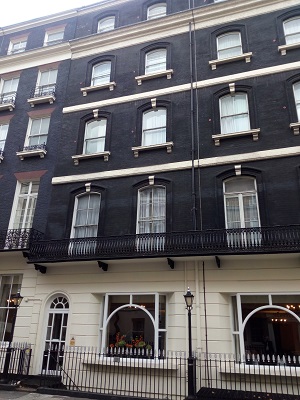
On this day, 4 October 1918, Sassoon had had a vile day being lectured by Winston Churchill on the wonders of war, and listening to the din of the Russian Ballet, and was settling into a quiet companionable evening at Half Moon Street, when they were gate‐crashed by two screaming young queens ‐ among Robbie’s wartime achievements was to provide a well‐known safe haven for men who were ‘musical’ [as gay men were called] and in need of support, advice or encouragement.
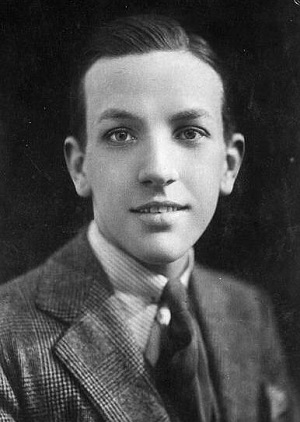
These two ruined the atmosphere, gave Sassoon a splitting headache, and broke up the party. Sassoon sensed something wrong as he said goodbye to Robbie. Ross died of heart failure the next morning.
The two insensitive interlopers were Scott Moncrieff, translator of Proust, and the Boy Actor and sometime teenage prostitute, Noel Coward. The whole incident is a name‐dropper’s paradise.
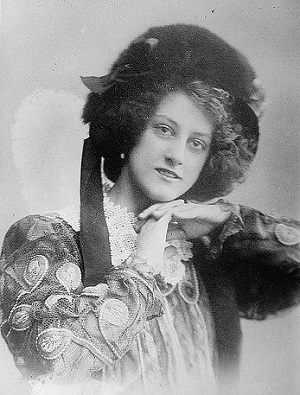
I have stuck strictly to the known facts save in two respects. Moncrieff is replaced by Coward’s close friend and early writing partner, Esmé Wynne. This is to get a female voice into the ensemble, and to mirror the resources used in Fishing. The original intention was to be able to double all parts.
t also avoided issues of alpha male competition between Sassoon and Moncrieff, which would have diluted the focus of the piece. The other change is to introduce an anachronism, Eric Satie’s ballet Parade, which was not premièred in London until 1919.
It seemed just the thing to unsettle the nerve of a shell‐shocked infantry Captain, with its score incorporating sirens and pistol shots.
The title Front has multiple meanings. It is literally the Western Front to which Sassoon is about to return despite the best efforts of his friends. It is the interstices between Ross the man and his battles for civilisation and his beliefs.
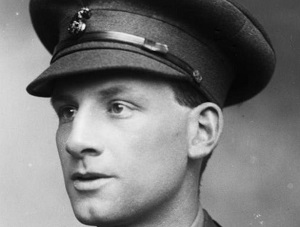
It is the brave Front, the façade which Coward and Ross and all homosexuals must put on to negotiate a life for themselves in these times; a Front which also hides the doubts, uncertainties and guilts which we all carry around.
This inner life is revealed in the four interior monologues which are musically interwoven in the last pages, culminating in a resolve to be the best that we can be.
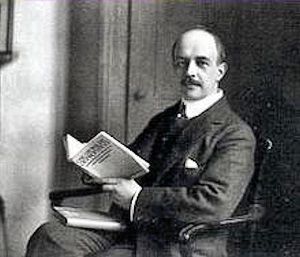
The various fronts mentioned by Peter also set multiple musical challenges for me in setting the libretto for Front.
The diversity of the characters needed to be felt and owned by the singers; in this instance it is the frail Robert Ross (baritone) opposing the tenor of the disturbed Siegfried Sassoon ‐ these two characters are the backbone of this opera whereas the obtuse youngsters are portrayed vocally by Noel Coward’s ‘Podge’ (counter‐tenor) and the more brooding Esmé Wynne’s ‘Splodge’ (mezzo-soprano).
As in Fishing the voices are supported by a Piano Trio, but this time the violin is replaced by a flute whilst the piano and cello are retained. This different tonality helped me to develop the work with its multiple themes of war, pacifism, isolation, youthful exuberance and personal fronts.
It seemed inevitable that certain musical references should support the libretto and I have indeed used short excerpts from Eric Satie’s Parade and Jerome Kern’s Oh Joy! ‐ otherwise the music stands proudly alongside the descriptive narrative.
I should note that the final ‘quartet’ is a complex structure built on a rising scale terminating at a flattened 7th which begins the next scale ‐ forming a ‘whole tone’ underlying structure above which are expanded by the harmonic and melodic vocal lines ‐ creating a rich and atmospheric finale to a demanding work.
Resources: Performers ‐ Tenor, Baritone, Countertenor, Mezzo‐soprano. Players ‐ Piano, Flute, Cello.
Duration: 58 minutes
Sources:
Siegfried’s Journey 1916‐1920 by Siegfried Sassoon [Faber, 1945]
Noel Coward by Philip Hoare [Sinclair‐Stephenson, 1995]Robbie Ross: Oscar Wilde’s True Love by Jonathan Fryer [Constable, 2000]
Read the Script
Read the Score and listen to the Music
Anyone interested in performing all or part of it should Contact Us